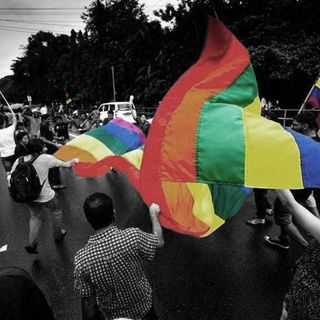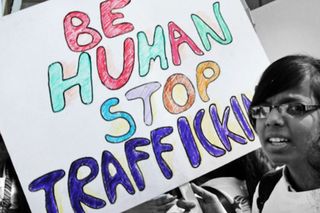
New Research Spotlights India’s Dismal Conviction Rates for Slavery‑Related Offenses
“There is no fear of the law,” a researcher and anti-slavery advocate says.

Fewer than 1% of people charged with slavery-related offenses in West Bengal and Andhra Pradesh, between 2008 and 2018, have been convicted, according to a Thomson Reuters Foundation report of research involving government data.
Tafteesh, an anti-slavery program under the social equity NGO Sanjog, “analyzed police diaries, cases filed in court, and complaints registered with police by survivors,” according to the Thompson Reuters Foundation. Its researchers concluded only three people have been convicted out of 429 individual charges in trafficking cases in those states, two hotspots for human trafficking, over the last decade.
“There is no fear of the law,” Snigdha Sen, a researcher at Tafteesh, told the Thomson Reuters Foundation. “Traffickers out on bail have a lot of power and can do anything. They influence witnesses, threaten survivors and often commit the crime again. … Many of them eventually get acquitted.”
India is home to roughly 45% of the world’s total enslaved population — more than 18 million people who “cannot refuse or leave because of threats, violence, coercion, abuse of power or deception, with treatment akin to a farm animal,” according to the Global Slavery Index (GSI). These people are forced to work primarily in the following sectors: domestic work, sex work, construction, farming, fishing, manual labor, and forced begging. Poverty, compounded by ingrained social inequities, drive enslavement, with some people entering bonded labor due to a complete lack of resources and options, according to End Slavery Now; others are trafficked. Girls and women, particularly those from scheduled castes and tribes, are particularly vulnerable to exploitation, according to the GSI.
According to the International Justice Mission, an international human rights NGO, India has strong anti-slavery laws on the books already. But advocates say the low conviction rate is due to poor enforcement of these laws by under-resourced police and judicial systems, reports the Thomson Reuters Foundation.
Related on The Swaddle:
Expert Poll: India Is World’s Most Dangerous Country for Women
“Even though this is organized crime, investigations by police are not thorough,” said Ram Mohan, secretary of Andhra Pradesh-based anti-trafficking charity HELP, told the Thomson Reuters Foundation. “It is resulting in criminals getting away and as the research shows, many traffickers are involved in multiple crimes. We need good investigation and strong testimonies from survivors after they are counseled.”
In 2018, the Lok Sabha passed an addition to India’s canon of anti-slavery laws, the Trafficking of Persons (Prevention, Protection and Rehabilitation) Bill, aimed at amplifying the rescue, protection and rehabilitation of trafficked persons. While it would establish dedicated district-, state- and national-level investigative units, experts say it’s an unfunded mandate that doesn’t add much to existing legal frameworks or resources for improved enforcement. “It is not factual but just another document from a new government,” Barkha Singh, an activist and former chairperson of Delhi Commission for Women, told India Today in 2016, when the bill was first proposed.
Liesl Goecker is The Swaddle's managing editor.
Related


Study: Women More Likely Than Men to Send Nudes in Order to Retain Partners’ Romantic, Sexual Interest
